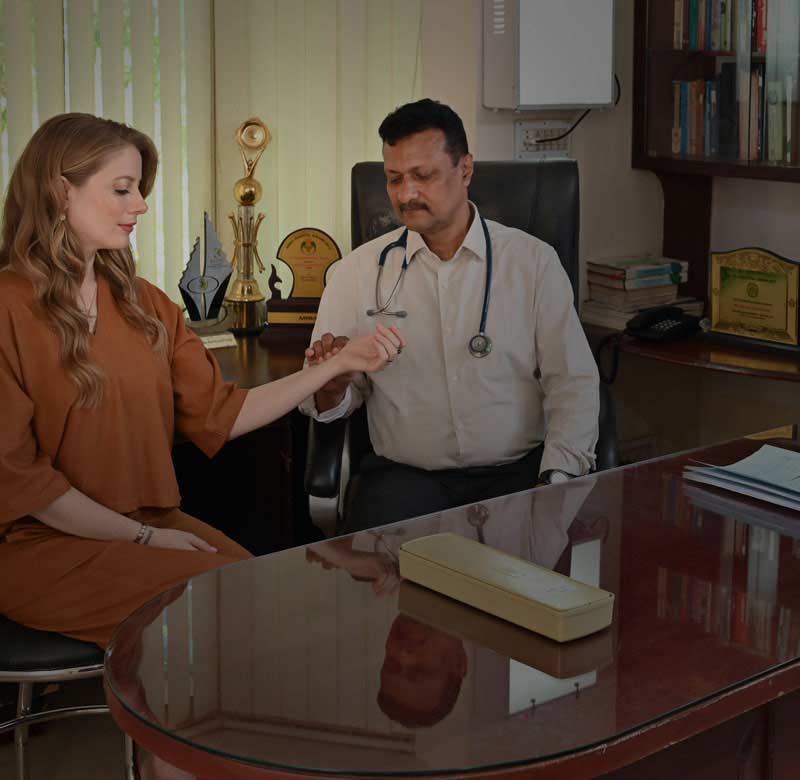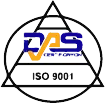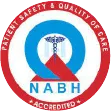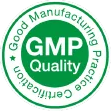







For authentic & scientific
ayurveda
Nagarjuna has developed speciality protocols
and adopted integrated and holistic approaches “to improve
the quality of life of ailing population”.
PCOD
Polycystic Ovarian Disease (PCOD), also known as Polycystic Ovary Syndrome (PCOS), is a hormonal disorder that primarily affects women of reproductive age. It is characterized by the presence of multiple small cysts on the ovaries, along with a range of symptoms related to hormonal imbalances.
PCOD is caused by a combination of genetic and environmental factors. While the exact cause is unknown, it is believed to involve insulin resistance, elevated androgen levels (male hormones), and abnormal follicle development in the ovaries.
One of the key features of PCOD is the disruption of normal ovarian function. Instead of releasing mature eggs during the menstrual cycle, the ovaries in women with PCOD produce an excess of immature or partially-mature eggs. These eggs can form small fluid-filled sacs or cysts on the ovaries, giving the condition its name.
The symptoms of PCOD can vary from woman to woman and may include:
- Menstrual irregularities: PCOD often causes irregular or absent menstrual periods. Some women may experience heavy or prolonged bleeding, while others may have infrequent periods.
- Infertility: Due to irregular ovulation or lack of ovulation, women with PCOD may have difficulty getting pregnant. The hormonal imbalances associated with PCOD can also affect the quality of eggs and increase the risk of miscarriage.
- Androgen-related symptoms: Elevated levels of androgens can lead to symptoms such as excess hair growth (hirsutism) on the face, chest, and abdomen. Acne and male-pattern baldness (hair loss) may also occur.
- Weight gain and difficulty losing weight: Many women with PCOD struggle with weight management. Insulin resistance, a common feature of PCOD, can contribute to weight gain and make it harder to lose weight.
- Skin problems: PCOD can be associated with skin issues such as oily skin, acne, and darkening of certain areas of the skin, such as the neck and armpits.
In addition to these symptoms, PCOD is also linked to various long-term health risks. Women with PCOD have a higher likelihood of developing type 2 diabetes, high blood pressure, abnormal lipid levels, and cardiovascular disease.
Diagnosing PCOD involves a combination of evaluating symptoms, medical history, physical examination, and specific tests. These tests may include hormone level assessments, ultrasound imaging of the ovaries to detect cysts, and sometimes additional blood tests to rule out other conditions.
While PCOD cannot be cured, its symptoms can be managed through various treatment approaches. Treatment goals may include regulating menstrual cycles, managing hormonal imbalances, improving fertility, and addressing associated health risks.
The treatment options for PCOD may include:
- Lifestyle changes: Adopting a healthy lifestyle that includes regular exercise, a balanced diet, and weight management can help improve symptoms. Losing even a modest amount of weight can have a significant positive impact on PCOD symptoms.
- Medications: Depending on the specific symptoms and goals of treatment, healthcare providers may prescribe different medications. These may include hormonal contraceptives (birth control pills) to regulate menstrual cycles, anti-androgen medications to reduce excess hair growth and acne, and medications to induce ovulation for women trying to conceive.
- Assisted reproductive techniques: For women with PCOD who are struggling with infertility, assisted reproductive technologies such as in vitro fertilization (IVF) may be recommended.
- Surgical intervention: In certain cases, surgery may be considered to remove cysts or restore ovulation. However, surgery is typically reserved for specific situations where other treatment options have been ineffective.
Managing PCOD also requires regular monitoring and follow-up visits with healthcare providers.
Please fill up the form to get in touch with us, or contact us for any queries





Terms of use | Privacy Policy | Contact us
Copyright © 2026. All Rights Reserved
Designed & Developed by Websoul Techserve








